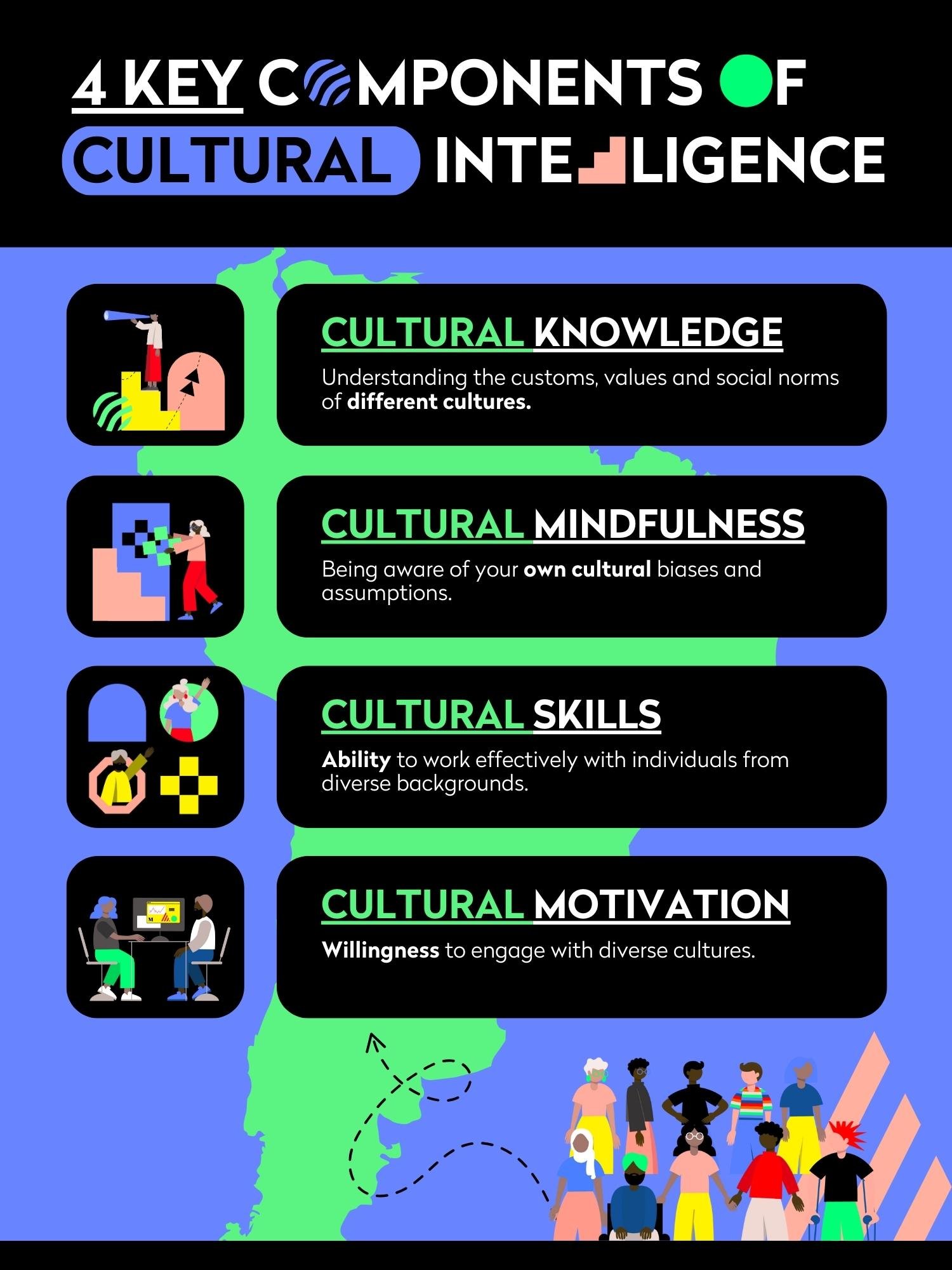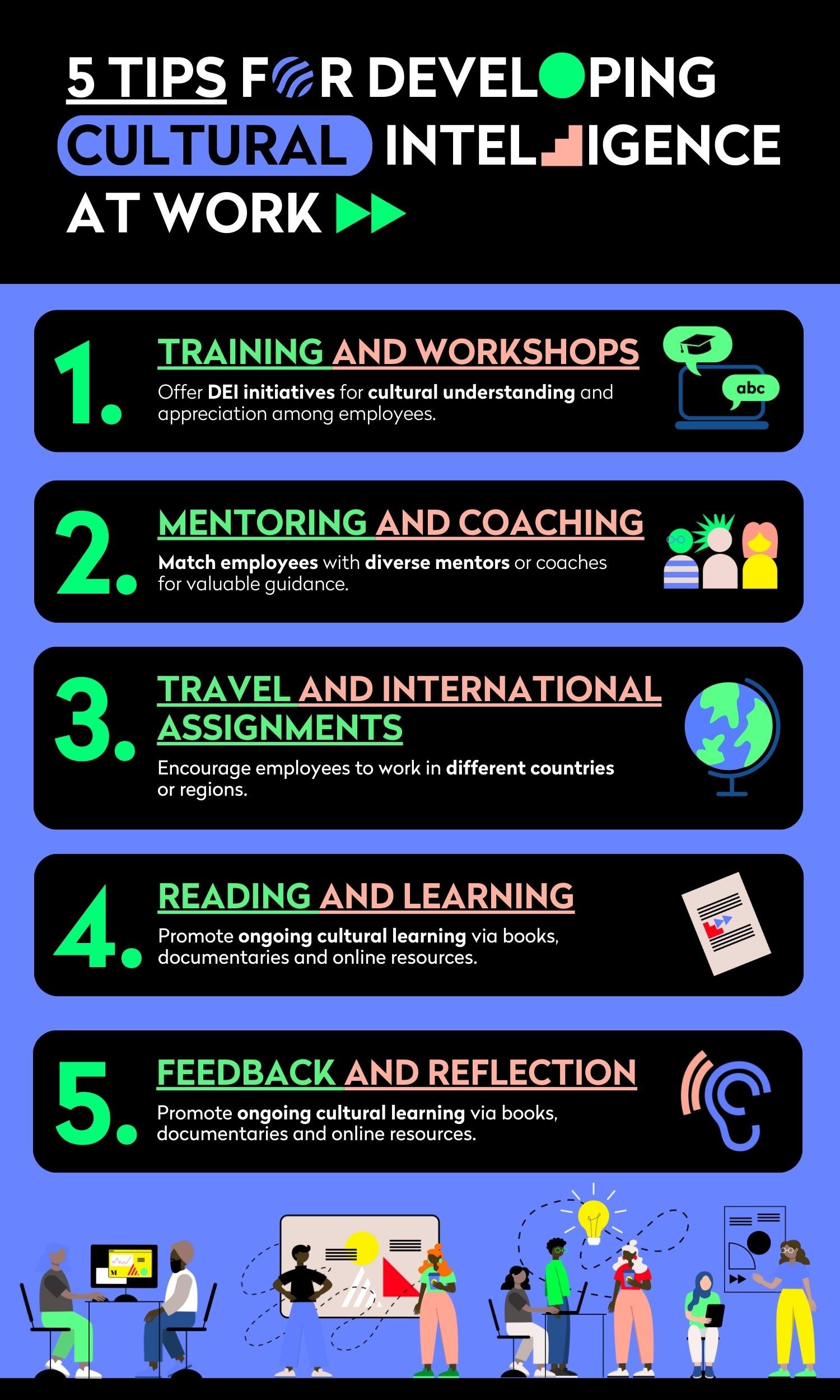What is Cultural Intelligence?
Empathy is often defined as truly understanding another person's experience by putting yourself in their shoes. This concept shares common ground with Cultural Intelligence, which is the ability to interact with and adapt to diverse cultural contexts.
In this article, we will delve into what Cultural Intelligence is, why it’s important, and how you can develop it, especially in a workplace setting.
Defining Cultural Intelligence
Cultural Intelligence, or CQ for short, is a term coined by scholars Christopher Earley and Soon Ang in the early 2000s. It refers to the capability to function effectively in situations characterised by cultural diversity. In essence, it's about being able to work and communicate across different cultures with sensitivity and skill.
4 Key Components of Cultural Intelligence
Cultural Intelligence involves these 4 key components:
Cultural Knowledge: This involves understanding the customs, traditions, values, and social norms of different cultures. It's about acquiring knowledge of other cultures to avoid misunderstandings and misinterpretations.
Cultural Mindfulness: Being culturally mindful means being aware of your own cultural biases and assumptions. It's the ability to step outside your own cultural frame of reference and see the world from another person's perspective.
Cultural Skills: These are the practical abilities to communicate, negotiate, and work effectively with individuals from diverse backgrounds. It includes skills like active listening, adaptability, and conflict resolution.
Cultural Motivation: Your willingness and motivation to engage with people from different cultures. It involves an open-minded and positive attitude towards diversity.
Why is Cultural Intelligence Important?
Cultural Intelligence is crucial for several reasons:
Enhanced Communication: Effective communication is at the heart of successful collaborations. Understanding cultural nuances can help avoid misunderstandings and conflicts.
Global Business Opportunities: As businesses expand across borders, having employees with high CQ becomes a competitive advantage. It allows companies to tap into new markets and build relationships with international partners.
Diversity and Inclusion: High CQ promotes diversity and inclusion in the workplace, which can lead to greater innovation and better problem-solving.
Cross-Cultural Teamwork: In multinational teams, individuals with Cultural Intelligence can bridge cultural gaps, promote teamwork, and increase overall productivity.
5 Tips for Developing Cultural Intelligence at Work
Now that we've established the importance of Cultural Intelligence, here are some practical steps to develop it in the workplace:
Training and Workshops: Many organisations offer DEI programmes, training and workshops to help employees understand and appreciate cultural differences. These can include unconscious bias training, intersectionality training and even privilege training.
Mentoring and Coaching: Pairing employees with mentors or coaches from different cultural backgrounds can provide valuable insights and guidance. You can even give reverse mentoring a try.
Travel and International Assignments: If possible, encourage employees to work in different countries or regions. Immersion in different cultures is one of the most effective ways to enhance CQ.
Reading and Learning: Encourage continuous learning about different cultures through books, documentaries, and online resources.
Feedback and Reflection: Regularly seek feedback from colleagues on your intercultural interactions. Reflect on your experiences and identify areas for improvement.
Cultural Intelligence is an essential skill inside and outside the workplace. Opening yourself up to the world around you can help you harmonise with it and nurture life-changing relationships.
Whether you're working with colleagues, clients, or partners from diverse cultural backgrounds, developing and honing your CQ is a must. Prepare yourself for more effective communication, better relationships, and increased success in your working lives.
If you’re looking for a more hands-on approach to building your organisation’s cultural intelligence, then check out my off-the-shelf or fully customisable keynote speaking services.
Written by Michael
Michael Mauro is the founder of a forward-thinking organisation specialising in leadership, HR and employee development. With over a decade of global experience, Michael has become a leading voice on topics such as culture, inclusion, wellbeing, and the future of leadership.




